If you're a personal injury attorney, then your day is already full. Calls are constant. Cases require your attention. Court deadlines don't wait. When someone suggests you add digital marketing to that mix, it’s understandable if your first reaction is frustration.
Still, while you're running from one responsibility to another, your potential clients are online. They are searching for answers after accidents and wondering which personal injury lawyer can help them. If your name doesn't show up, they will find another law firm.
This is why understanding digital marketing for personal injury lawyers matters. The right strategy makes sure that when people search for help, they find your website, your helpful answers, and your trusted experience. All of this happens quietly in the background while you focus on your cases.
In this guide, I will show you simple steps that make digital marketing approachable. Each step is designed for busy legal professionals who need results, not complicated jargon or overwhelming tasks.
Let's begin by exploring why this matters more than ever for personal injury law firms.
Why Digital Marketing Matters for Personal Injury Lawyers
Digital marketing is promoting your law firm online, using channels where potential clients spend much of their time. This includes your website, blog posts, social media, search engines, emails, and online ads. It allows you to connect with people who are actively seeking help, unlike traditional methods that often cast a wide, unfocused net.
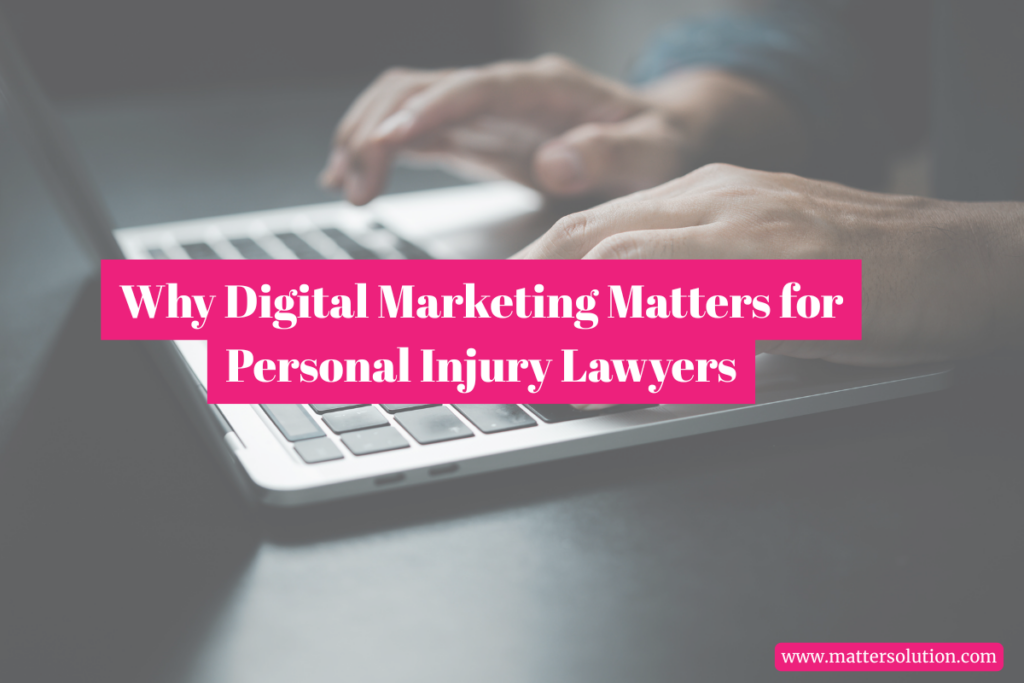
When someone searches for "personal injury lawyer near me," they are not idly browsing. They are often dealing with urgent and stressful legal issues. Your online presence ensures you are available to help at that crucial moment.
Personal injury cases have unique needs, similarly commercial lawyers also greatly benefit from tailored strategies. Explore our guide on digital marketing for commercial lawyers to learn more.
Why Being Online is Essential
More people now turn to the internet before making important decisions, including finding legal representation. Without a strong online presence, your firm becomes invisible to those in need. People search daily for guidance and answers. If they cannot find your law firm quickly and easily, they will find someone else.
In fact, 64% of people said their first step when facing a legal issue would be researching online, which shows how essential it is to show up where potential clients are looking. (Source)
When your website answers common questions and you appear in local search results, you begin building trust right away. Clients often choose legal services based on familiarity and comfort. Seeing your firm listed and providing helpful content makes people more confident about reaching out to you.
Building Trust Before Clients Contact You
When your website answers common questions and you appear in local search results, you begin building trust right away. Clients often choose legal services based on familiarity and comfort. Seeing your firm listed and providing helpful content makes people more confident about reaching out to you.
Marketing That Works While You Focus on Clients
Digital marketing quietly supports your practice. While you prepare cases, meet clients, or are in court, your website and online presence continue working in the background. They introduce new clients to your services and bring steady inquiries without needing your constant attention.
Your digital presence forms the foundation of your marketing efforts. Next, let’s look at your website, which serves as your firm’s digital front door and often makes the first impression on potential clients.
Your Website: The Heart of Digital Marketing
When someone visits your law firm’s website after an accident, they are likely anxious and searching for reassurance. If your website feels confusing or outdated, they may leave quickly and find another attorney.
Your website is your digital front door. It welcomes visitors, answers their questions, and helps them decide whether to contact you. That makes it one of the most important parts of your entire digital marketing strategy.
Why a Professional Website Matters
Think of your website as your firm’s receptionist. It should offer a clear, friendly introduction to who you are and how you can help. Every visitor should know within seconds what your firm does and how they can reach you.
Clear navigation and simple language make a big difference. Avoid legal jargon. Instead, speak plainly, as though explaining your services to a neighbor. Make sure contact information is easy to find on every page, especially on mobile devices where people are often searching.
Showcase Who You Are and Build Trust
Potential clients want to know they are dealing with real people. Add photos of yourself and your team. Share your story and why you care about helping those injured through no fault of their own.
Positive reviews and testimonials are powerful. They give visitors confidence in your services, especially if they are navigating the legal process for the first time.
Ensure Your Website Works on All Devices
More people are searching on smartphones than ever before. If your site does not load properly or is hard to use on mobile devices, visitors may leave quickly. A responsive, fast-loading site makes sure every visitor has a smooth experience, no matter what device they use.
If building or improving your site feels overwhelming, professional help can make the process easier. You can explore expert support through digital marketing services that are designed to help busy professionals like you grow their online presence.
Your website is only part of the picture. Once it is optimized, the next step is making sure people can actually find it. That is where search engine optimization comes into play.
Search Engine Optimization (SEO): Get Found Where It Counts
If you are not on the first page of search results, many potential clients will never see you.
When someone needs a personal injury lawyer, their first stop is often Google. They search for phrases like "personal injury lawyer near me" or "best injury attorney in [city]." Appearing in these search results matters. That is where search engine optimization, often called SEO, plays a major role in your digital marketing strategy.
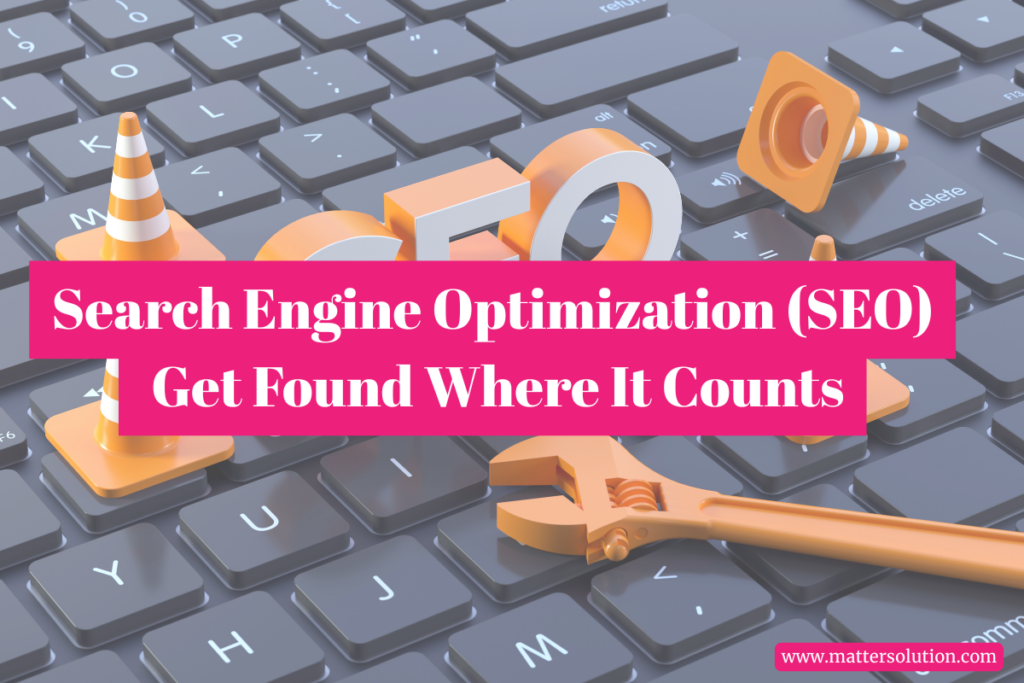
SEO helps your website become visible when people search for legal help online. It involves making sure your site sends clear signals to search engines so they know what services you offer and which areas you serve.
Make Keywords Work for You
Keywords are the words and phrases your potential clients type into search bars. To help your site rank, these words need to be included naturally in your website’s pages.
Focus on phrases that match what people actually search for, such as "car accident lawyer" or "personal injury attorney in [city]." This is not about stuffing your pages with keywords, but using them naturally where they make sense, especially in headings and introductory sentences.
Your Site Should Be Fast and User-Friendly
Google wants to show users helpful and easy-to-use websites. If your site takes too long to load or is hard to navigate, both visitors and search engines may ignore it.
Mobile optimization is particularly important. Most people search using smartphones or tablets. A fast, mobile-friendly site improves rankings and provides a better experience for visitors.
Take Advantage of Local SEO
Local SEO helps your law firm appear in searches made by people in your area. When someone nearby types "personal injury lawyer near me" into Google, Local SEO is what ensures your firm shows up on the map and at the top of results.
Unlike general SEO, which aims to attract visitors from anywhere, Local SEO focuses on making sure you are visible to people who live near your office or in your service area. This matters because most people who need legal help prefer hiring someone local.
To make the most of Local SEO:
- Claim and verify your Google Business Profile. This is what allows your firm to appear in map results and local searches.
- Make sure your name, address, and phone number (often called NAP) are consistent across your website and all online listings.
- Collect reviews from satisfied clients. Positive reviews improve your local ranking and help build trust.
According to Google, complete and accurate business profiles are twice as likely to be considered reputable by searchers. Being easily found locally means more people will choose your firm when they need help.
SEO sets the stage for visibility. Next, we will see how content marketing supports this by offering helpful answers and building trust even before someone picks up the phone.
Content Marketing: Answer Questions Before They Call
People turn to Google with questions long before they are ready to hire a lawyer.
"Do I have a personal injury case?"
"How much does legal representation cost?"
"How long do injury claims take?"
These are just a few examples of what potential clients type into search engines every day. This is where content marketing shines. By offering helpful answers to these questions, your law firm can build trust before clients ever contact you.
What is Content Marketing?
Content marketing is the process of sharing useful information online to help and educate your audience. For personal injury lawyers, this means creating articles, blog posts, videos, and FAQs that address the most common concerns of injury victims.
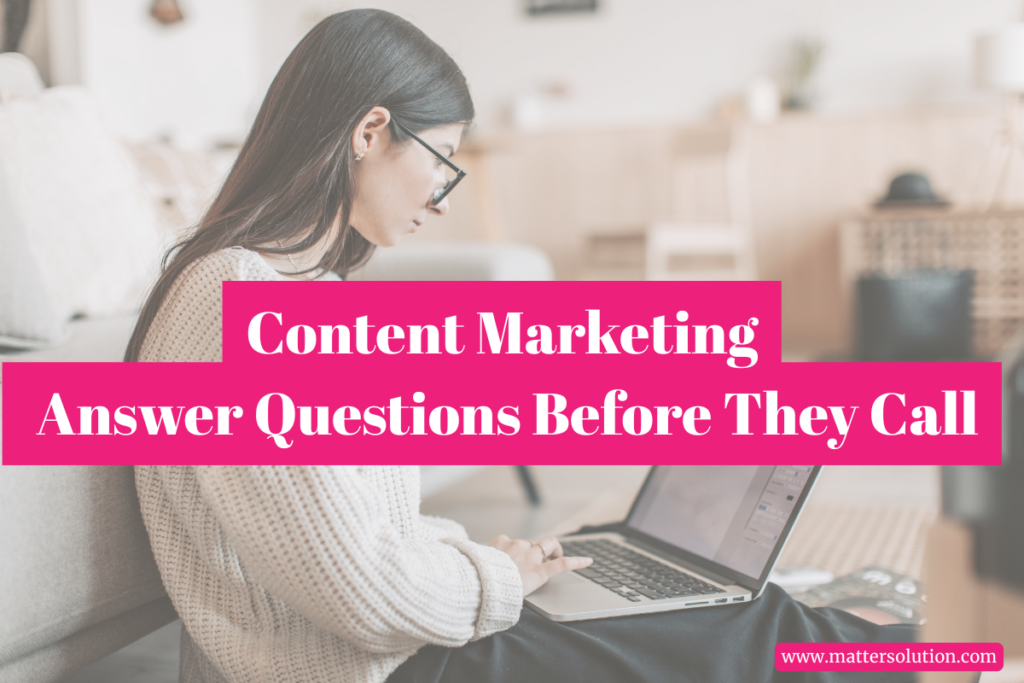
This is not about selling. Instead, it focuses on providing clear, compassionate guidance. When you help people understand their options, they begin to see you as the right person to call when they are ready.
Why Content Matters
Content not only educates but also improves your website’s visibility. Search engines favor websites that offer valuable information. The more helpful and relevant your content, the more likely you are to appear higher in search results.
Helpful content can include:
- Blog posts answering frequent legal questions.
- Guides explaining the legal process after an injury.
- Articles about your experience and success in personal injury law.
- Videos simplifying complex legal topics.
Publishing regularly helps keep your site fresh and signals to search engines that you are active and engaged.
Build Connections Through Content
When potential clients find your helpful articles, they often start viewing your firm as trustworthy and caring. They may bookmark your page or return when they are ready to proceed with their case.
Keeping your content simple and easy to read makes this connection stronger. Avoid complex legal terms. Instead, write in the same way you would explain to a family friend.
Content marketing works quietly but effectively. After creating helpful articles and resources, the next step is sharing them where your audience spends time. That brings us to social media marketing, which we will explore next.
Social Media Marketing: Stay Connected and Top of Mind
For personal injury lawyers, social media offers a powerful way to stay visible and connected within your local community. It gently reminds people that you are available to help when legal issues arise.
Many former clients, friends, and local contacts spend time on social media platforms like Facebook and LinkedIn. Maintaining an active presence keeps your law firm familiar and trustworthy, which increases the chances of referrals and direct inquiries.
Why Social Media Works for Law Firms
Social media keeps your name in front of people in a natural and approachable way. It introduces your firm to potential clients who may not know about you and ensures that past clients remember you when new legal needs surface.
Sharing helpful and thoughtful content also shows your human side. People appreciate lawyers who are relatable and transparent.
What to Share
The best content offers real value and is easy to understand. Focus on posts like:
- Legal tips that address common personal injury concerns
- Success stories and testimonials (shared respectfully)
- Updates about your firm’s community involvement
- Informative articles and blog posts from your website
Avoid overwhelming your audience with promotional messages. Sharing useful knowledge and positive stories positions you as a trusted resource they can turn to during difficult times.
How to Stay Consistent Without Overthinking
Posting consistently is important, but this does not mean posting every day. Create a simple schedule to keep your content flowing naturally. Posting a few times a week works well and keeps your audience engaged without feeling overloaded.
Free scheduling tools like Meta Business Suite make it easy to plan posts in advance. This allows you to maintain a regular presence while focusing on your legal practice.
Social media strengthens your overall marketing strategies by building connections and reinforcing your online presence. While it helps nurture relationships, some situations call for faster action. Paid ads can help you reach potential clients quickly, and that is exactly what we will cover next.
Paid Ads (PPC): Reach People Ready to Hire Right Now
Some clients cannot wait. They need legal help immediately.
While SEO and content marketing build long-term visibility, paid ads offer a way to appear at the top of search results right when potential clients are actively searching for legal representation. This makes paid ads one of the most direct digital marketing channels available to personal injury lawyers.
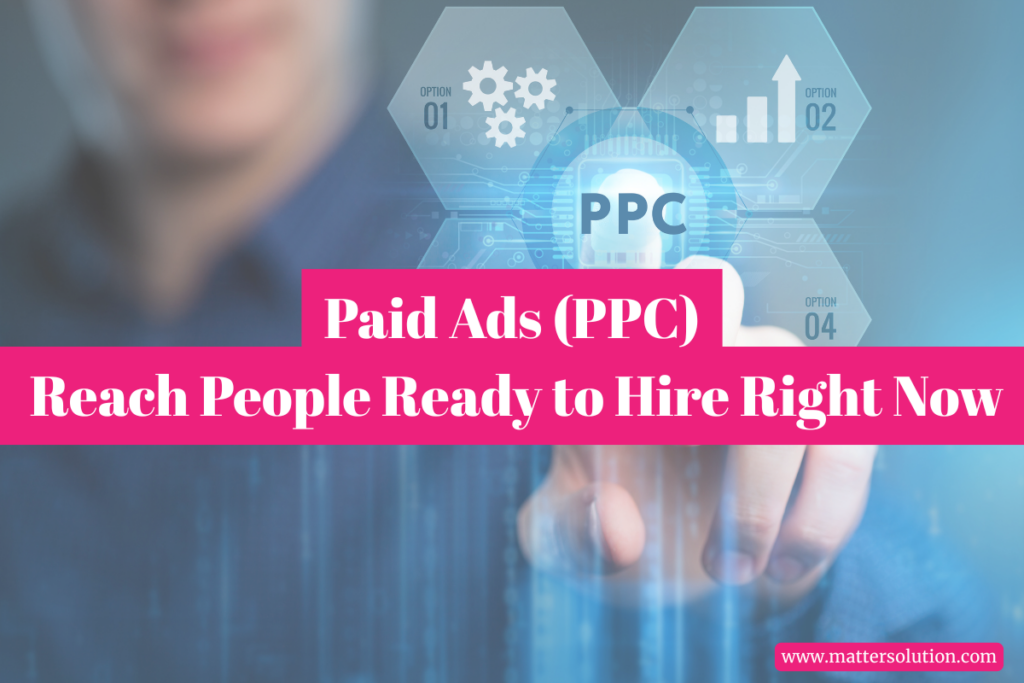
Paid advertising, often referred to as PPC (pay-per-click), allows your law firm to display ads on platforms like Google. You only pay when someone clicks your ad, which makes this an efficient way to target people who are already searching for help.
How Paid Ads Work for Personal Injury Lawyers
When someone searches for terms like "injury attorney near me" or "personal injury law firm in [your city]," paid ads can place your firm at the top of those search results. This gives your firm immediate visibility in a very competitive space.
Running ads allows you to focus on specific services and geographic areas. You decide which keywords to target and which audiences to reach. This level of control ensures your marketing budget is spent reaching potential clients who are most likely to need your services.
Creating Ads That Bring Results
To make the most of paid advertising:
- Choose specific, high-intent keywords. Broad terms waste money by attracting the wrong audience.
- Focus on your local area to connect with people nearby.
- Write clear, compelling ad copy that speaks directly to those facing legal challenges.
Being strategic makes your ads more effective and reduces wasted spending. People who click your ads are often in urgent situations, which makes them more likely to call or request a consultation.
Managing Paid Ads Without Stress
Running ads does not mean you have to manage them every day. Tools from platforms like Google Ads make it simple to set budgets and monitor performance. Hiring experts to help can also ensure your campaigns stay optimized and cost-effective.
Paid ads bring immediate results and complement your ongoing marketing efforts like SEO and social media. They help you stay competitive and connect with potential clients when they are most ready to act.
Next, we will look at how reviews and your online reputation can influence decisions even before a client reaches out to you.
Reviews and Reputation: Modern Word of Mouth
Before picking up the phone, people check reviews. Every time.
Potential clients do not make decisions lightly, especially when it comes to personal injury cases. They want to feel confident that the lawyer they choose has successfully helped others in similar situations. This is why online reviews have become essential for law firms.
When your firm has positive reviews, you send a strong message. You show potential clients that others trust you and that you deliver results. These reviews can tip the scales in your favor, often before you even have a chance to speak with someone.
Why Reviews Matter
Reviews build trust faster than almost anything else. When people see real feedback from past clients, they feel more secure choosing your firm. This is especially important in legal matters, where trust is key.
Search engines also reward law firms with strong reviews. A steady stream of positive ratings improves your visibility in local search results, helping new clients find your practice more easily.
How to Get More Reviews Naturally
Encouraging reviews does not have to be complicated. Here’s what works:
- Ask satisfied clients after you close their cases. Timing matters. When you ask right after a positive outcome, clients are more likely to help.
- Make the process simple. Provide direct links to your Google Business Profile or other platforms.
- Respond politely and professionally to all reviews, even critical ones. This shows potential clients that you care about feedback.
Keeping your reviews up to date signals that your firm is active and engaged.
Building Trust That Leads to Action
Strong online reputations do more than make you look good. They help potential clients move from considering your firm to contacting you. When they see others had positive experiences, they feel reassured in choosing you for their legal needs.
Maintaining a positive reputation online supports all your other marketing strategies. Once you have built trust through reviews, the next step is creating a simple marketing plan that keeps everything running smoothly without becoming overwhelming. That is exactly what we will focus on next.
Building a Simple, Repeatable Marketing Plan
Too many marketing options can leave you confused about where to start.
For many personal injury lawyers, managing digital marketing feels overwhelming. Between websites, SEO, social media, and paid ads, it may seem like you need to do everything at once. The good news is, you do not. The most effective approach often starts small and builds over time.
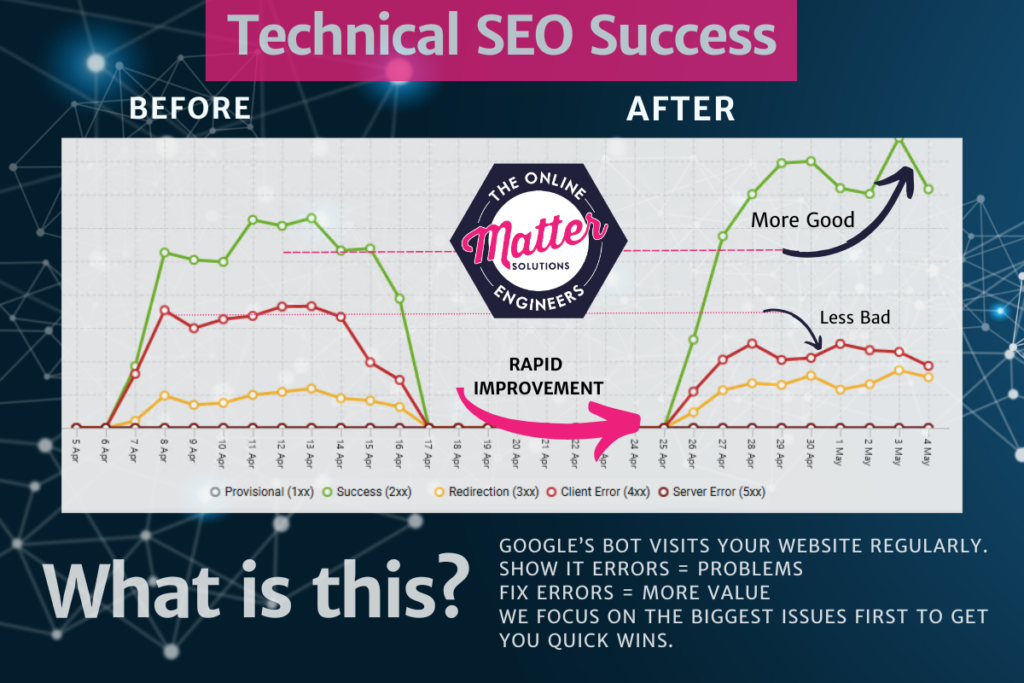
A simple plan keeps your marketing efforts focused, manageable, and consistent. This helps you stay visible without pulling your attention away from your law practice.
Focus on the Essentials First
You do not need every tool or platform right away. Begin by selecting a few core areas to focus on. These should be tactics that bring steady results and fit comfortably into your schedule.
Good starting points include:
- Keeping your website updated and easy to navigate
- Publishing helpful content regularly to answer common legal questions
- Gathering positive reviews to build trust
Starting small allows you to maintain consistency, which matters more than trying everything at once.
Create a Regular Schedule
Consistency builds momentum. Marketing does not have to be daily to work, but it should be steady. Set aside a little time each week to review your efforts, create new content, or update your social media posts.
Simple habits, like scheduling posts in advance or updating your blog twice a month, help your firm stay active online without feeling overwhelmed.
Measure What Works and Adjust
Tracking your marketing helps you understand what brings results. Pay attention to:
- Increases in website traffic
- New client inquiries
- Reviews and engagement on social media
These indicators show where your efforts are paying off and where you may want to invest more time. Adjust your plan as needed to keep improving.
Keep It Flexible and Grow Over Time
Your plan should fit your current needs and expand naturally as your firm grows. Once your essential strategies are working smoothly, you can add more advanced techniques like email marketing, video content, or even online courses to reach a wider audience.
Marketing does not have to disrupt your daily work. By following a simple and repeatable plan, you will continue building your firm’s visibility and attracting more clients without unnecessary stress.
Your marketing journey does not stop here. To continue building your presence and make the most of your digital opportunities, professional support can make a real difference. Before we finish, let’s cover some common questions personal injury lawyers often have about digital marketing.
Frequently Asked Questions About Personal Injury Law and Digital Marketing
Navigating both personal injury law and digital marketing can feel complex at first.
Lawyers often have practical questions about case handling, settlements, and how to grow their online presence. Below, we answer some of the most common questions to help clear things up quickly.
What percentage do most personal injury lawyers take?
Most personal injury lawyers work on a contingency fee basis, typically taking between 33% and 40% of the settlement amount.
How hard is it to win a personal injury lawsuit?
Winning depends on proving liability and damages. Strong evidence, expert testimony, and clear documentation can make cases more successful, though each situation is unique.
How much do most personal injury cases settle for?
Settlement amounts vary widely based on injury severity, liability, and jurisdiction. Many cases settle between $10,000 and $125,000, but some can go much higher.
How much compensation for personal injury?
Compensation depends on medical expenses, lost wages, pain and suffering, and other damages. Every case is different and should be evaluated individually.
What does a digital marketer do?
A digital marketer helps businesses grow their online presence. This includes managing websites, creating content, running ads, improving SEO, and using social media to attract potential clients.
What are the 4 types of digital marketing?
The core types include content marketing, search engine marketing (SEO and paid ads), social media marketing, and email marketing.
What are the 7 types of digital marketing?
The main types are content marketing, SEO, social media marketing, email marketing, mobile marketing, paid advertising, and affiliate marketing.
What is the best form of advertising for a lawyer?
SEO combined with Google Ads often delivers the best results. This helps law firms appear in local searches when potential clients need immediate legal help.
What is SEO for lawyers?
SEO for lawyers involves optimizing websites and content to rank higher in search results. This helps potential clients find legal services easily when searching online. For an overview of how digital marketing can boost any legal practice, visit our comprehensive guide on digital marketing for lawyers.
Ready to Start? Your Digital Future Awaits
Simple steps create powerful results.
Digital marketing does not need to overwhelm you. Focus on building a strong website, sharing helpful content, staying active on social media, asking for reviews, and running targeted ads when needed. Together, these actions help your firm stay visible and trustworthy.
Once you see steady inquiries, this really starts to feel rewarding.
You do not have to manage it all alone. Our digital marketing services are designed to make this easier and help you grow without added stress.
(Working with the right team makes everything run smoother.)







